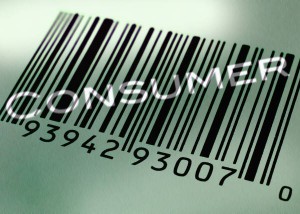ERP vs. CRM - What’s the difference?
Consider this: When you send a parcel via FedEx, USPS or UPS, they give you a receipt with an alpha-numeric code on it. You can then log on to their website and track the delivery status of your package with that code. In fact, you can even see, in real time, precisely which city has your parcel has reached, whether it's in air transit, or who signed for it at the delivery destination. How is it possible?

Answering that means understanding the difference between ERP and CRM, and more importantly, how it can help your business.
ERP (Enterprise Resource Planning) is a multi-module software tool that maintains information about various departments within a company -- finance, accounting, inventory, payments, delivery, support, payroll, etc. -- all in a central database.
In the package example above, a popular model used in business schools, ERP works like this: You - the customer - hand the parcel to the shop owner. He or she enters the details into his computer along with the tracking code. When the packages are loaded on to the truck and leave the shop, the owner changes the status of all packages accordingly. As the package moves along the delivery line, the process is repeated until it reaches the final destination.
Information about the payment received from customer goes to the finance department, which also gathers other information like operating costs, fuel surcharges, salaries, etc. Information about delays in air transit might go into the support department. If business is growing, the human resource department will see that it needs to staff up. And so on, and so on. This capturing of data is ERP.
CRM (Customer Relationship Management), on the other hand, is all about the customer. Again, using the courier example from above, CRM works like this: when you deliver the package to the shop, your name, address and purchasing habits can be stored in a CRM database. When the company needs to promote a new service, they can tap into this database to deliver marketing materials, either via the mail, the internet or even mobile geo-targeting, to a target audience. Even more brilliantly, CRM can shoot emails to customers informing them about confirmed delivery along with name of the person who received it.
Today, the lines between ERP and CRM are coalescing. Take, for example, product inventory - typically a function of ERP, it becomes a CRM issue if the website says the product is available, but the customer orders it only to find out it is not available. Sales and marketing might want to use the information to target that customer at a later date to entice them to shop with the company again.
Together, ERP and CRM allow employees and management to share and coordinate information within an organization, allowing previously disparate departments to work more cohesively for greater profit.
To learn more about the CRM and ERP services provided by ICS, please call us at (813) 319-3704

© 2024 TeleVoIPs, LLC
All Rights Reserved